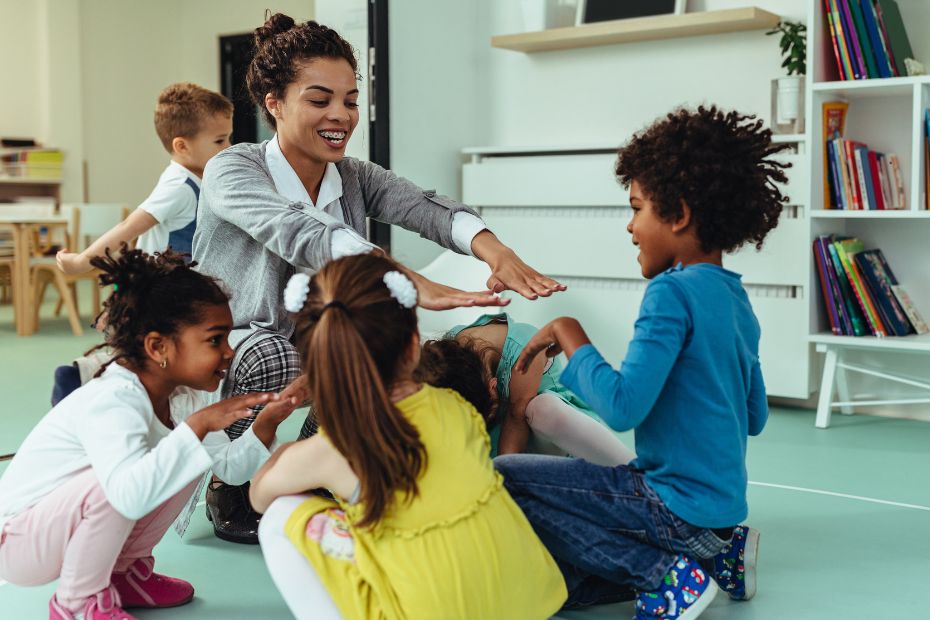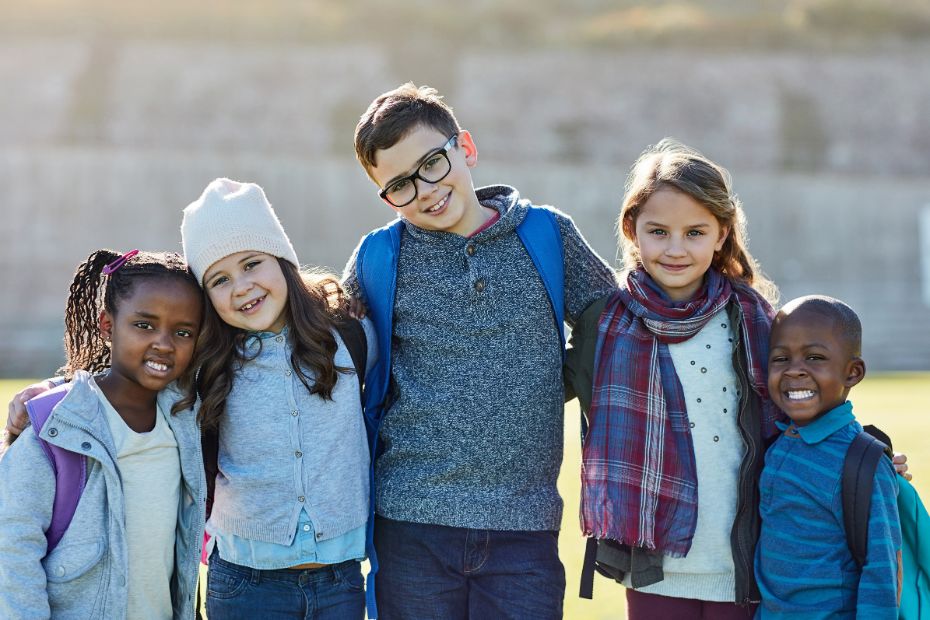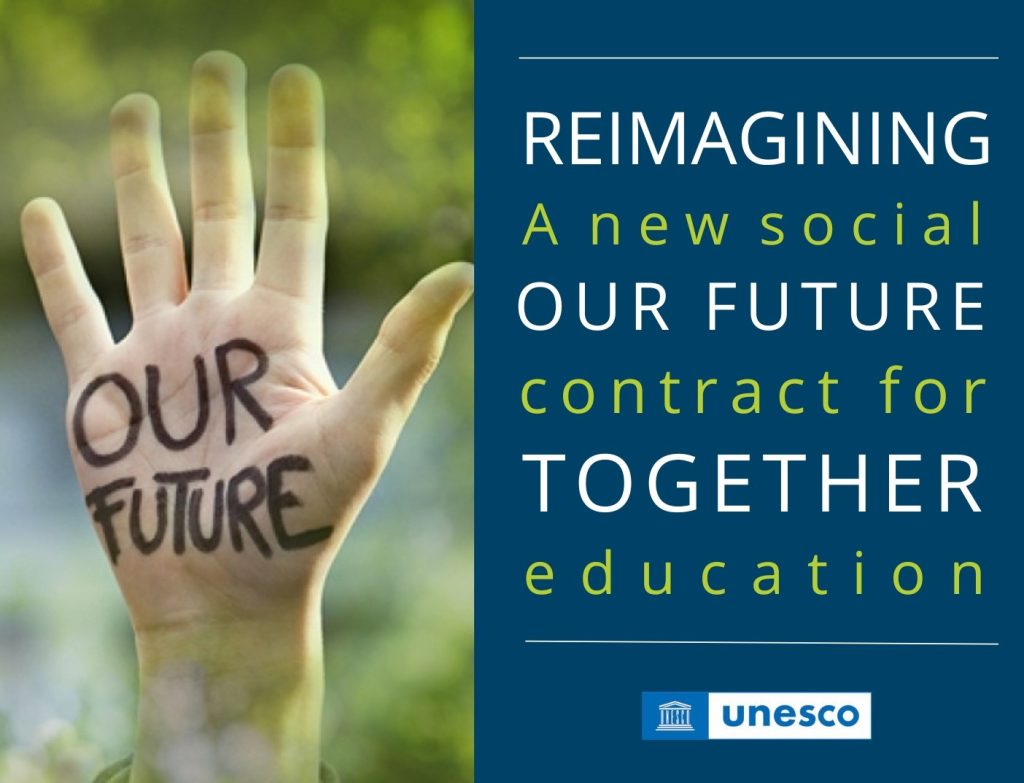For half a century, the United Nations Educational, Scientific and Cultural Organisation (UNESCO) has been producing a report of enormous relevance and importance in the world educational context, which sets the guidelines and orientations for where we are heading in education.
In 1972 there was the report: Learning to be. The Education of the Future, also known as the Faure Report, and in 1996, Learning: The Treasure Within, popularly known as the “Delors Report”. According to Jacques Delors (2001), lifelong learning should be based on the following pillars: learning to know, learning to do, learning to live together and learning to be, forming the basis of all learning.
In 2021 UNESCO proposes a new report looking ahead to 2050 on how we should reinvent ourselves in the world of education, entitled: Reimagining our futures together: A new social contract for education (link to document).
Why is this report so important at this time?
Growing social and economic inequality, climate change, loss of biodiversity, resource use that exceeds the planet’s capacity, democratic setbacks and disruptive technological automation are the hallmarks of our historical juncture. These multiple and overlapping crises and challenges limit our human rights, both individual and collective, and have contributed to harming much of life on Earth.
Knowledge and learning are essential to address this moment, and to promote the renewal and transformation we need. In contrast to 20th century education geared to development efforts through compulsory schooling of children and youth, today, when we face serious threats to the future of humanity and the planet, we must urgently reinvent education to meet these common challenges. A new social contract for education must unite us around a collective endeavour and must provide the knowledge and innovation needed to forge sustainable and peaceful futures for all, based on social, economic and environmental justice.
What are the fundamental principles of this new social contract?
A new social contract must draw on the general principles that underpin human rights – inclusiveness and equity, partnership and solidarity, as well as collective responsibility and interconnectedness.
What are the proposals for renewing education?
- The pedagogical focus needs to shift from teacher-led lessons focused on individual achievement to one that emphasises cooperation, collaboration and solidarity.
- Curricula, which are often structured as a grid of subjects, should be changed to emphasise ecological, intercultural and interdisciplinary aspects of learning.
- Teaching, which is now seen as an individual practice, should be transformed into a more professional and collaborative effort.
- Schools are necessary institutions throughout the world and must be preserved. But we must abandon the imposition of universal models and rethink the concept of school, from architecture, spaces and use of time, to calendars and study groups.
- At all stages and in all places where learning takes place, we should stop thinking of education as something that happens mainly in school and at certain ages and always expand learning opportunities for all and in all places.


How could we achieve a new social contract for education?
Innovation and change can be achieved on a large scale. The new social contract for education could be realised through millions of individual and collective acts – acts of courage, leadership, resilience, creativity and personal care. A new social contract would have to overcome discrimination, marginalisation and exclusion. We must strive to ensure gender equality and rights for all, without discrimination on the basis of race, ethnicity, religion, disability, sexual orientation, age or citizenship. A collective commitment to social dialogue, joined-up thinking and action is needed.
- A call for research and innovation. A new social contract requires the creation of a joint global research agenda focusing on the right to lifelong learning. This programme should focus on the right to education and include a variety of evidence and pedagogical methods, including horizontal learning and cross-border knowledge sharing. This initiative should also include contributions from all sectors, from teachers to students, from universities to research centres, and from governments to civil society organisations.
- A call for global solidarity and international cooperation. A new social contract for education calls for a renewed commitment to global collaboration in support of education as a common good, based on fairer and more equitable cooperation between state and non-state actors. The international community must be engaged in helping these actors close ranks around the common purposes, norms and standards needed to realise the new social contract for education.
- Universities and other higher education institutions must be actively involved in all aspects of developing a new social contract for education. From providing support for research and scientific progress, to contributing to other educational institutions and programmes in their communities and the world. Universities that are creative, innovative and committed to improving education as a common good have an important role to play in the futures of education.
- It is imperative that we are all able to participate in shaping the futures of education: children, young people, parents, teachers, researchers, activists, employers, cultural and religious leaders. We have deep, rich and diverse traditions to build on. Human beings have great collective skill, intelligence and creativity, and we now face a very serious choice: to continue on an unsustainable path or to change course radically.
More than a guideline, this report is an invitation to think and imagine. The questions that emerge in the process must be taken up and answered in communities, countries, schools, curricula and systems of all kinds, worldwide. Forging a new social contract for education is a critical step in re-imagining our futures together.
The Agorá educational innovation group, in Champagnat Global, is a space where those interested in innovation and Marist education interact and share how to reimagine our education. If you are interested, we invite you to join this group.


